Developing new value for 30 years
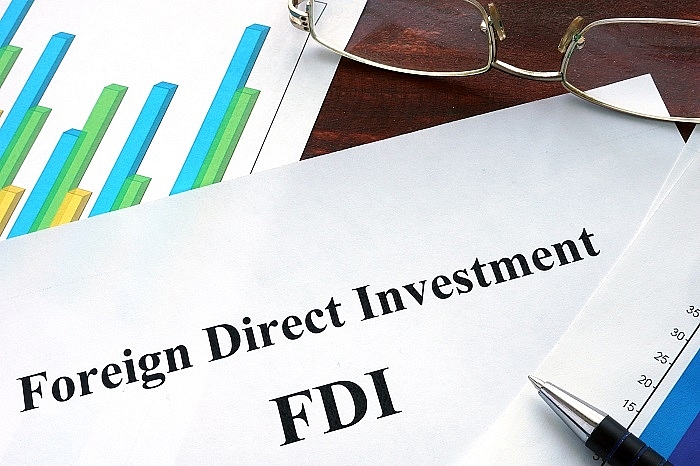 |
| Developing new value for 30 years, photo: shutterstock |
Mikio Masawaki-General director, Sapporo Vietnam
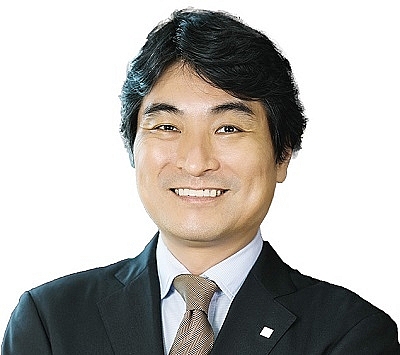 |
Sapporo officially entered the Vietnamese market in 2011. At the beginning, we invested more than $50 million into building Long An Brewery to Japanese standards to ensure the quality of Sapporo products in Vietnam. Beside Japan, this is our first overseas brewery.
Vietnam is one of the most interesting and dynamic beer markets in the world, with high potential growth supported by many beer lovers. With the mission, “Contribute to enriching Vietnamese cuisine,”
Sapporo Vietnam offers consumers safe and high-quality beer products according to Japanese standards and also the best match to Vietnamese consumers’ taste.
According to our Brand Health Research in 2018, our flagship brand – Sapporo Premium Beer – is trusted by nearly 100 per cent of target customers, and it is gradually becoming a unique brand in the premium beer segment.
Sapporo Premium Beer is the beer of celebration, and we truly believe we are the irresistible companion during our consumers’ unique moments in life. To fulfill this, we will continue strengthening our brand image with a consistent communication strategy, as well as increasing our Sapporo Royal users called “Sapporo Lover.”
Besides business, environmental conservation is also one of our top priorities in Vietnam. Our brewery in Long An has the most modern wastewater treatment system, which cost more than $3 million and meets the strictest standards of Vietnam. In addition, we have invested nearly $1 million to add energy-saving equipment in 2018 that helps reduce more than 100 tonnes of CO2 emissions per year.
Based on the “pioneering spirit” inherited throughout 140 years of Sapporo and with our long-term business strategy in Vietnam, we will continue to innovate to bring the ultimate experience to Vietnamese consumers and to become an essential brand in Vietnam.
Harry Loh-CEO, United Overseas Bank (Vietnam)
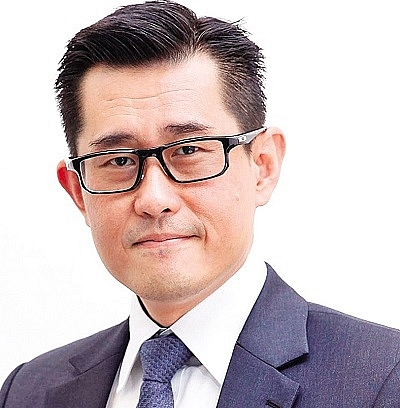 |
Vietnam, with its young population and growing middle and affluent classes, is an attractive investment destination for many overseas businesses.
There are fresh opportunities for foreign banks like us, because foreign-invested companies need financial advisors and service providers as they set up business in Vietnam.
More collaborations between foreign and domestic companies also mean business opportunities for foreign banks in Vietnam, who can act as a bridge between the two sides. Rising infrastructure investment is also another high-potential area for foreign banks.
United Overseas Bank (UOB) has long appreciated Vietnam’s strategic importance as an FDI magnet.
We were the first Singaporean bank to open a foreign branch back in 1995, and our FDI Advisory Unit here is a partner to government agencies, business associations, and professional service providers, delivering seamless and integrated business solutions.
UOB’s collaboration with Vietnam’s Foreign Investment Agency is one prime example of the partnerships that offer better regional connectivity to businesses. This was also the agency’s first such collaboration with a bank. Through our efforts to help our clients across Asia to identify and invest in business opportunities in Vietnam, we have facilitated more than $3 billion of FDI into Vietnam since 2013.
In September 2017, UOB was awarded the foreign-owned subsidiary bank licence. With this licence, we will be able to broaden and deepen our support for businesses and consumers in Vietnam as well as our regional clients. We will continue to help Vietnamese companies to achieve domestic and regional growth by connecting them to cross-border opportunities.
Last October, we also embarked on two initiatives to deepen our support of Vietnamese businesses: an agreement with co-working space provider Toong, in which UOB shares its expertise with Toong’s clients and other promising startups, and UOB’s accelerator programme for fintech startups throughout Vietnam, The FinLab. Last year, we partnered with Vietnam’s Foreign Trade University (FTU) to launch the first tertiary education programme designed for small business bankers in the country. The programme, called UOB-FTU Banker’s Executive Certificate Programme, is part of UOB’s career development initiative.
Lee JuHyeob-General director, Posco VST
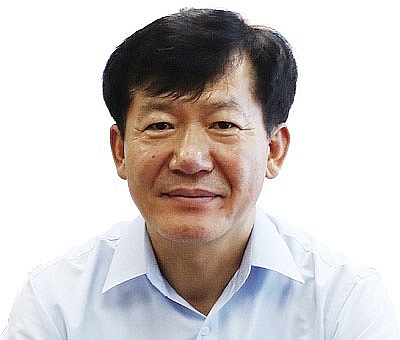 |
Posco VST came into being in October 2009 with $200 million seed capital to meet the growing local demand for stainless steel products.
Since then, we have been constantly investing in production expansion, as well as new machinery and equipment with active support from Vietnamese management authorities at both the central and the local level. We have grown into a large-scale stainless steel production facility with an annual capacity touching 240,000 tonnes.
After about three years of operation in Vietnam, to meet the growing market demand, Posco VST has been injecting capital into production technology innovations to raise product quality and production output. As of now, we account for more than 40 per cent of the market share, providing 130,000 tonnes of stainless steel products.
The products made by Posco VST are widely used throughout the country, from kitchen utensils and equipment and industrial building materials such as water tanks to interior-exterior decorative materials, as well as transport sector equipment like exhaust-pipes for motorbikes. In response to the Vietnamese government’s active support, our company has been making efforts to support the employees as well as the local community through diverse philanthropic activities.
The employees are our most valued asset, so we have been doing our utmost to have in place a decent working environment, and encouraged employees to take part in diverse training courses to improve their qualifications. The company’s employees have also received bonuses based on their work attainments. To accompany our customers’ development journey, the company has been rolling out a “Solution Marketing” campaign under the slogan “Customers’ Success is VST’s Success,” striving to provide the best products and solution packages to our beloved customers. As the local community is always supportive of our company’s development, Posco VST has also been proactive in community-oriented activities.
Our stature today is the result of our ceaseless work towards developing together with our employees, customers, and local communities, not simply selling products.
Kelvin Teo-CEO, Sembcorp Development and co-chairman, VSIP Group
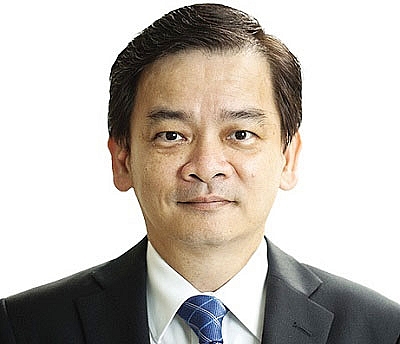 |
Sembcorp was an early investor in Vietnam back in 1996. VSIP was a shared project by the Vietnamese and Singaporean governments. The goal was for Singapore to share its own industrialisation experience with Vietnam through the development of industrial parks. Sembcorp was invited by the Singaporean government to develop and manage VSIP. Our main partner back then was Becamex IDC Corporation from the southern province of Binh Duong.
Sembcorp’s relationship with Becamex has been a strong one, based on mutual understanding, support, and work for the good of Vietnam. Our partnership is now 22 years old and we continue to work well together.
Our early decision to build VSIP to international standards has been a critical factor for success. We now serve 800 tenants from 30 countries and territories, with investments valued at more than $12 billion. Collectively, these tenants employ more than 224,000 workers across some cities and provinces in Vietnam. VSIP has been successfully showcasing Vietnam’s sustained economic reform strategy, its abundant market potential, and young and dynamic workforce. The government has done well to keep economic growth robust, accompanied by macro-economic stability. It has maintained its open-door policy towards foreign investment.
In the last few years, Vietnam has also signed many trade agreements, opening up its links to global markets. Manufacturers appreciate Vietnam’s competitive advantages. Today, Vietnam is in a very unique position amidst shifts in global conditions. We look forward to the country strengthening its reforms and maintaining its growth momentum.
Gianluca Fiume -CEO, Piaggio Asia
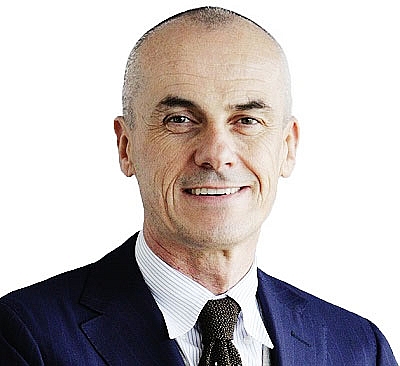 |
Piaggio Vietnam Co., Ltd. was established in 2007 with an industrial complex based in Binh Xuyen Industrial Zone in the northern province of Vinh Phuc. Piaggio Vietnam is also the regional headquarters of Piaggio in Asia, which employs more than 700 skilled and talented people. The production site consists of a vehicle plant, an engine production plant, and the only Asia-based research and development (R&D) centre. The plant has been contributing to the development of the two-wheeler business in Southeast Asia. So far, over half a million scooters have been marketed locally and abroad, including Thailand, Indonesia, Malaysia, Taiwan (China), the Philippines, South Korea, Japan, Australia, and China.
Piaggio Group has decided to set up the first Asian two-wheeler R&D centre in the Vietnamese plant to meet the strong demand for two-wheelers in Vietnam and other Southeast Asian markets. The new R&D Centre in Vinh Phuc develops vehicle concepts and engine technology with an aim to cut fuel consumption and emissions, factors which are of particular importance for Asian consumers. Being the leading European motorcycle manufacturer in Vietnam, for the last 10 years, Piaggio Group has made great contributions to the local market and society. We are the pioneer in identifying and developing the premium scooter segment. We provide the most eco-friendly and safe product range and we introduced the advanced ABS safety braking system to the Asian scooter world. Piaggio Group has been actively working with local authorities to share our global manufacturing point of view and expertise for the development of motorcycle industry in Vietnam.
Dominique Albero-General manager, Pullman Saigon Centre
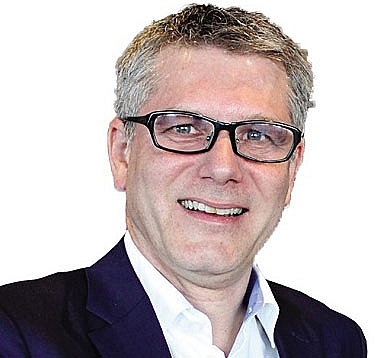 |
The tourism industry is rapidly developing in Vietnam and has become a driving force of the Vietnamese economy in recent years. Last year, international visitor numbers increased by 29.12 per cent on-year to 12.9 million.
With continual strong GDP growth, infrastructure development, improved connectivity and accessibility, and foreign direct investment figures growing by 70 per cent on-year, we expect a strong future for the Vietnamese tourism industry and economy.
The Vietnamese tourism industry is expected to benefit from recent developments, including the opening of the eighth international airport and recent visa eases to make international travel more attractive.
Travellers from North America, Europe, Taiwan, Hong Kong, and Australia will receive visa exemptions, whilst travellers from other markets will be able to visit for up to 15 to 30 days without needing a visa.
In addition, in recent years, many international luxury hotel chains have expanded their reach to Vietnam, setting up in Hanoi, Hue, and Ho Chi Minh City.
Bringing world-renowned luxury accommodation to the country, they also provide numerous corporate event planners with a choice of state-of-the-art event spaces ideal for most types of MICE events.
Vietnam has a lot to offer business travellers as one of Southeast Asia’s up-and-coming MICE destinations. Furthermore, Vietnam is also becoming a high-potential market for foreign hospitality investors.
Maxfield Brown-Senior associate, Business Intelligence, Dezan Shira & Associates
 |
Vietnam’s FDI composition is undergoing a period of significant diversification. In recent years, investors initially drawn by low wages have pumped significant amounts of capital into the economy. The average Vietnamese citizen is now better educated than in years prior and capable of spending more on consumer goods than ever before. This reality is changing why companies are drawn to the Vietnamese market and in turn presents new opportunities and challenges for both foreign investors and government policy makers.
Investors are also drawn to Vietnam’s rapidly emerging middle class. Blossoming local spending on consumer goods has resulted in growth in retail investment as established global brands fight to establish name recognition within the country.
Coupled with continued population growth and strong demographic shifts towards urban areas, both retail and real estate projects are projected to capture a significant share of investment in the years ahead.
Vietnam’s network of free trade agreements also plays a significant role in determining the appetite of countries for FDI in Vietnam. Investors, particularly focused on manufactured goods, have long benefitted from being able to export products from Vietnam at a significant discount compared to similar production facilities located in China.
Pierre-Jean Malgouyres-General director, Archetype Group
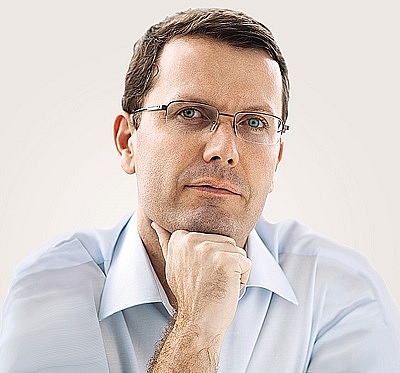 |
Archetype has been operating in the region for more than 16 years, and we have witnessed the remarkable growth of Vietnam and are proud to have taken an active part in it. We are aware of the contributions that foreign investors have made to the Vietnamese economy in the past 30 years. As a French company born and headquartered in Vietnam, we understand how investors are drawn to the country’s market potential with promising returns, affordable labour force, and high natural resources endowment.
After three decades of welcoming FDI inflows, the Vietnamese economy is now growing at a steady pace, and the economic fundamentals are in place. The biggest beneficiaries of FDI up until this point are the manufacturing and processing sector, followed by power production and distribution. After our acquisition of Tebodin Asia-Pacific in 2016, our industrial division quickly grew to cater to these promising sectors, with extensive industrial portfolios in Vietnam and an increasing focus on sustainability and environmentally friendly solutions, which we believe is inevitable for Vietnam to boost economic growth.
As the market continues to develop, we have reason to expect increasing investment in high value-added sectors. Archetype therefore pays great attention to building expertise and skills to welcome opportunities not only in the traditional manufacturing sectors, but also in renewable energy projects and other high-tech industries.
We express optimism in FDI attraction to sustainable energy projects, including solar and wind energy, especially with more incentive schemes from the government. Archetype’s industrial division is currently working on two major solar farms in Vietnam, one of which will be the first project to be connected to the national electricity grid in October. Further discussions with other renewable energy investors are already underway.
Furthermore, besides Vietnam being home to a rapidly growing consumer goods market, we can expect increasing demands in infrastructure, healthcare, and agriculture, which will attract FDI inflows and generate more business opportunities. Archetype is excited and prepared for the future, with a promise to hold true to our vision of bringing world-class construction services to Vietnam’s constantly growing market.
Choi Duk Jun-General director, Mercedes-Benz Vietnam
 |
During the past two and a half years of working in Vietnam, I have had a chance to experience different services. Vietnam is a fast-growing country in the region, with significant development in transportation and infrastructure. More highways connecting key cities and provinces are being built, especially in the north. Vietnam also has many airports around the country, both domestic and international.
Overall, the transportation system and infrastructure in Vietnam is quite good, but we can upgrade it further for future development.
I believe the country can deliver top-quality services for tourist groups and a fresh environment for foreign investors. Vietnam has long opened up and welcomed new innovative ideas and modern technologies from around the world, helping it to integrate and offer world-standard services to customers. Some cities such as Danang have very good facilities for this. Last year, Danang proved its capabilities by hosting the APEC 2017.
In the auto business, Mercedes-Benz is privileged to be loved by not only individuals, but also corporations. More than 80 per cent of five-star hotels and resorts in Vietnam have chosen Mercedes-Benz as their luxury chauffeur car. We always strive to deliver the best services so as to justify the trust that customers place in us. We offer corporate and individual customers the same value of products and services, yet in different formats customised to suit each group.
For corporate customers, we have a special fleet scheme, co-branding activities, and training for drivers, as well as supporting their business by hosting events and seminars.
Troy Griffiths-Deputy managing director, Savills Vietnam
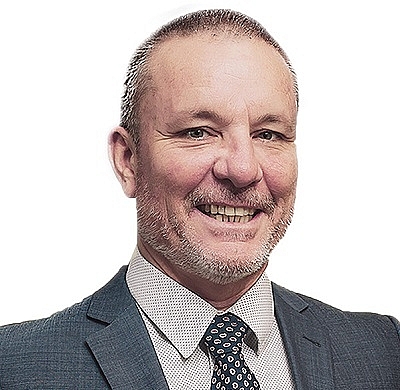 |
A good macro-economy supports domestic growth and foreign direct investment to continue soaring. 2018 saw a very healthy start, with solid performance across all asset classes.
Foreign investors remain strongly interested in the Vietnamese property market. Quantitative easing (QE) has brought very low returns throughout the region.
As QE lets up, emerging markets may come under some pressure, particularly their currencies. Property will remain a safe haven in the short term.
We can see that mergers and acquisitions activity has been pretty hectic across the region. The listed market has been particularly active with over $1 billion collected through listings on the Vietnamese stock exchanges in the first quarter of 2018. Whilst the index has recently taken a downturn, there is still a strong pipeline of property listings to come in the near term.
Overall, Vietnamese property returns are generally higher than regional peers. Rental yields across most asset classes are reasonable and with capital gain factored in, total returns are competitively high. With ‘country risk’ rapidly diminishing, foreign capital is being lured to Vietnam.
Vietnam is well positioned to leapfrog traditional markets through financial technology platforms that could have great benefits to property markets.
Without legacy systems and with a young, savvy, and ambitious startup culture, the opportunities to embrace technological advancement are strong.
The government has a raft of initiatives, decrees, and circulars to support this, however, competition from regional peers is immense.
Stefano Clini - Managing director, Carlsberg Vietnam
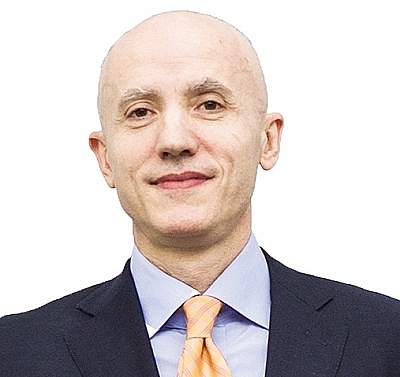 |
As one of the 10 leading beverage markets, Vietnam is forecast to retain its strong growth in the future, driven by the rapid rate of urbanisation as well as the increasing middle class and young population. According to the Ministry of Industry and Trade’s estimation, in 2025, the Vietnamese beverage market will hit 4.6 billion litres of beer sold. Thus, we are pinning high hopes on the market and want to make long-term investments.
We have a portfolio of qualified products to meet customers’ demands. Our local brands are Huda, Huda Ice Blast, and Halida, which have been tremendously successful and contributed to our growth. We now have the biggest market share in the central region, where we introduced Huda Ice Blast in April, and it is among the new products with the strongest growth in the Vietnamese beer market in 2018.
In addition, the international brand Tuborg, which is now beloved by young consumers, reported a good performance in the northern region, especially in Hanoi.
At Carlsberg, we see ourselves as playing an important role in the societies where we operate. As you may know, Carlsberg Group’s principal shareholder is the Carlsberg Foundation whose role is to ensure that Carlsberg Group continues to develop as a modern, international brewery that adds value for its shareholders and focuses on research, innovation, high-quality products, and social responsibility. The foundation gives us a unique culture that sets us apart from the rest of the beer industry and inspires us to contribute to local communities.
Over the past years, we have supported poor people and those who suffered from the two devastating storms hitting Vietnam. For nearly 20 years, we have been the lead sponsor for the Hue Festival, bringing arts and culture to the country.
We believe that sustainable development is an important business strategy amidst the global challenges of climate change, environmental pollution, and water scarcity.
What the stars mean:
★ Poor ★ ★ Promising ★★★ Good ★★★★ Very good ★★★★★ Exceptional
 Tag:
Tag:
Related Contents
Latest News
More News
- VinaCapital launches Vietnam's first two strategic-beta ETFs (February 26, 2026 | 09:00)
- PM sets five key tasks to accelerate sci-tech development (February 26, 2026 | 08:00)
- PM outlines new tasks for healthcare sector (February 25, 2026 | 16:00)
- Citi report finds global trade transformed by tariffs and AI (February 25, 2026 | 10:49)
- Vietnam sets ambitious dairy growth targets (February 24, 2026 | 18:00)
- Vietnam, New Zealand seek level-up in ties (February 19, 2026 | 18:06)
- Untapped potential in relations with Indonesia (February 19, 2026 | 17:56)
- German strengths match Vietnamese aspirations (February 19, 2026 | 17:40)
- Vietnam’s pivotal year for advancing sustainability (February 19, 2026 | 08:44)
- Strengthening the core role of industry and trade (February 19, 2026 | 08:35)


















 Mobile Version
Mobile Version